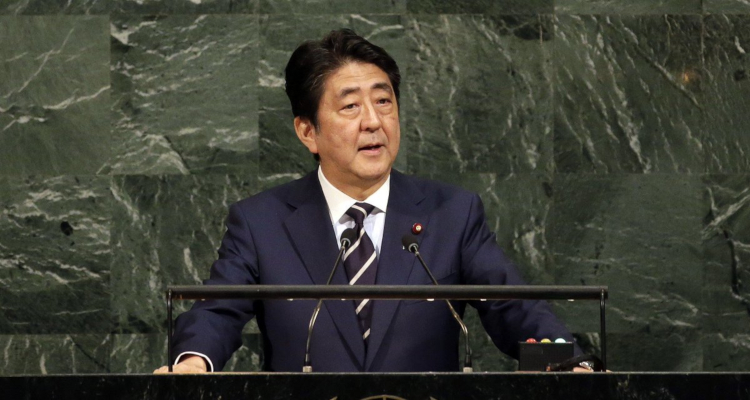In Japan, Friday reportedly saw the upper house of the nation’s bicameral National Diet ratify the Integrated Resort Implementation Bill, thus paving the way for the opening of up to three large integrated casino resorts by 2025.
Opposition efforts prove unsuccessful:
According to Friday reports from GGRAsia and Nikkei Asian Review, the casino legislation’s ratification by the House of Councillors came despite efforts from anti-gambling opposition politicians to delay the process via the lodging of no-confidence motions. However, these ultimately proved fruitless as the 242-seat body is currently controlled by members of the ruling Liberal Democratic Party and Komeito coalition of pro-casino Prime Minister Shinzo Abe (pictured).
GGRAsia reported that the Integrated Resort Implementation Bill was ratified by Japan’s lower House of Representatives in June while its subsequent passage by the House of Councillors last week means that local authorities will now be able to team up with foreign operators in order to bid for one of the three casino licenses, which could be awarded as soon as 2020.
MGM Resorts International to lead the charge:
One of the firms long interested in winning the right to operate a casino in Japan is Las Vegas-headquartered MGM Resorts International while its Chairman and Chief Executive Officer, Jim Murren, used a Friday statement to describe the legislative process as ‘very deliberate and transparent.’
Murren’s statement read…
“We appreciate the high level of social responsibility reflected throughout the process by creating one of the most comprehensive bills of its kind anywhere in the world.”
MGM Resorts International has already established a full-time development team for Japan with Murren moreover proclaiming that his firm now intends to ‘advance our relationships with key stakeholders’ in order to establish ‘a coalition of Japanese business partners’ that will jointly work to ‘define a vision for a uniquely Japanese world-class integrated resort.’
Japanese national debt on the rise:
GGRAsia reported that December saw Japan record an all-time high national debt that was equivalent to 253% of its gross domestic product. It detailed that the country’s aging population and low birthrate have caused its tax base to plummet although retired and unemployed citizens continue to enjoy a range of entitlement programs.
The legalization of casinos is being seen as a way to increase tax revenues and alleviate some of this millstone while additionally boosting tourism along with the economies of some of the areas outside of the major cities.
‘Fourth arrow’ policy not widely supported:
Abe has long reportedly pushed his ‘three arrows’ economic ideology encompassing structural reforms, monetary easing and fiscal stimulus with the legalization of casino gambling being widely called a ‘fourth arrow.’ However, a recent poll conducted by Nikkei Asian Review purportedly discovered that some 53% of the population was against the move due to fears over an expected rise in gambling addictions.



